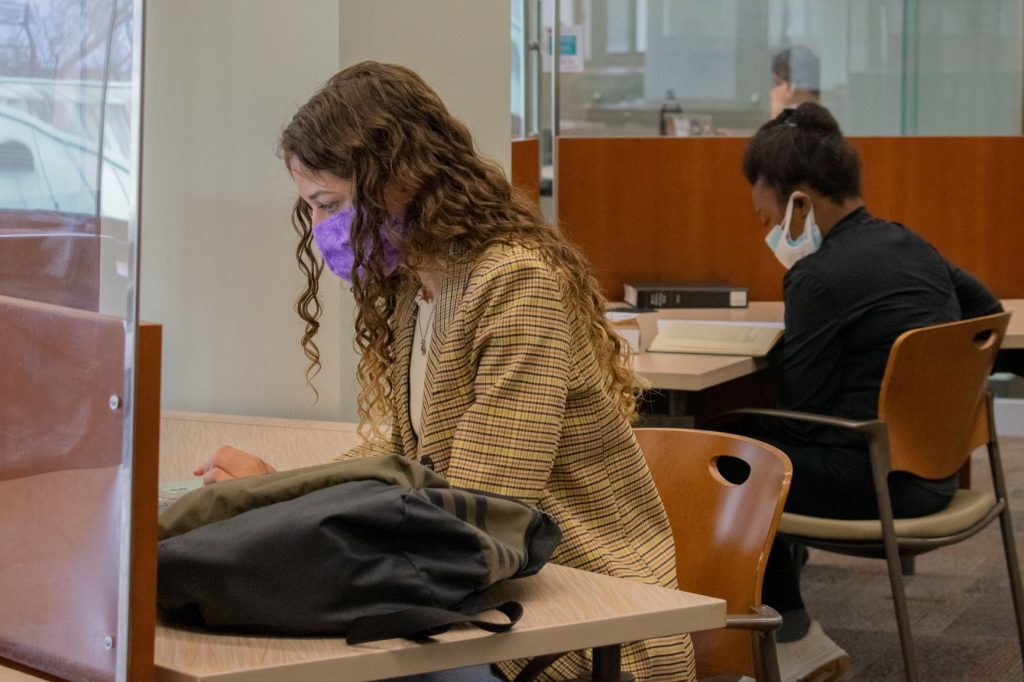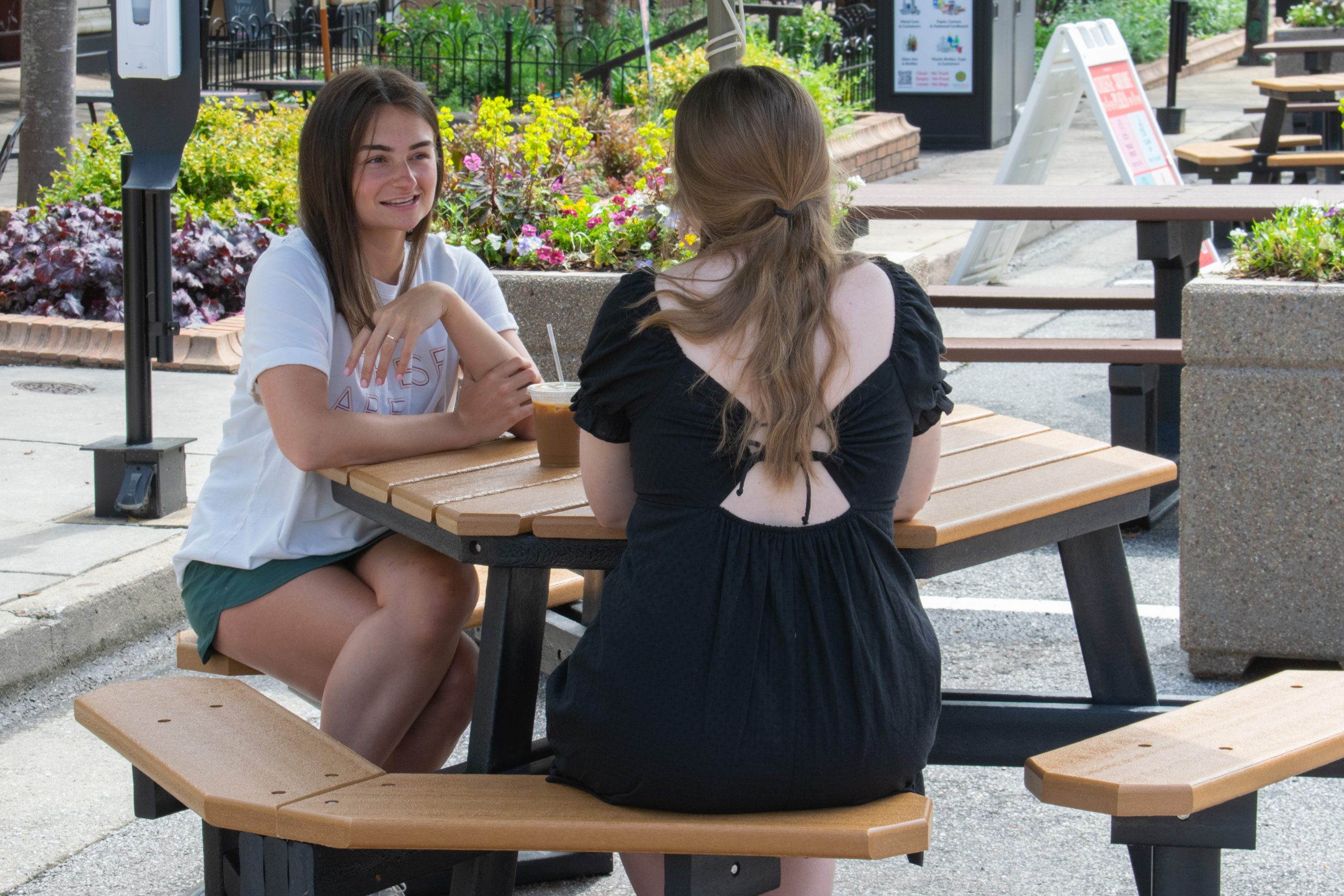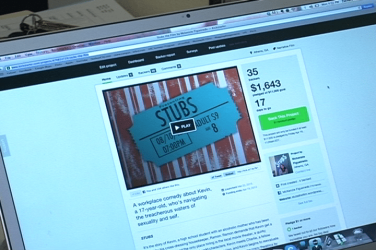Samantha King, a graduate student at the University of Georgia, said the past year has felt like the movie “Groundhog Day.” She gets out of bed, does her schoolwork, eats, goes to bed, and does it all over again the next day.
King realized the repetitive lifestyle she experienced as she limited face-to-face interactions due to COVID-19, was impacting her mental health and leaving her in “a funk.” Her social anxiety increased, she said, during long periods of social isolation.

While she may be physically alone, King is not alone in feeling overwhelmed by the social impacts and isolation brought on by COVID-19. Many students are struggling with mental health, experts say.
“All of us need social connections one way or another, and we have all had to learn new ways of doing that,” said UGA psychology professor Janet Frick. “Using Zoom is OK, but it’s not the same as being together in person.”
Why It’s Newsworthy: Many individuals and college students feel their mental health has been damaged from limited social interactions and changes in everyday life.
Psychology Behind Need for Social Interaction
Since the pandemic began, there has been a public health crisis not only associated with COVID-19 but with mental health due to social isolation during the lockdown. Many have struggled because people inherently seek face-to-face contact by nature, Frick said.
The use of Zoom and other virtual platforms has brought some silver linings. People can reduce their commutes by working from home. They can meet with friends they haven’t seen in person.
However, there are consequences when virtual communication is the only form used for over a year. The Center for Disease Control and Prevention reported an increase in anxiety symptoms for those ages 18-80 and older in 2020. The results show that the coronavirus pandemic has affected the everyday lives of many average Americans and their mental healths.
Frick said that missed experiences such as prom, in-person graduation and freshman orientation have impacted views on college life and culture, especially for freshmen. It has also held them back from being able to make new friends, potentially leading to loneliness and feelings of anxiety and depression.
Potential solutions include more outdoor socialization activities that allow students to meet and make friends while still adhering to rules that protect community safety, Frick said. Additionally, access to resources such as UGA’s Counseling and Psychiatric Services can help students in Athens learn to manage the loneliness, depression and anxiety caused by social isolation from the pandemic, she said.
Discovering New Coping Mechanisms
To adjust to the numerous changes in their social lives, students have had to find new ways to cope and have recognized the importance of taking care of their mental health.
King says the pandemic provided her an abundance of time to learn to prioritize her well-being.
“I need to be careful that I don’t get too reclusive or too introverted because I see then how that affects like the rest of me,” she said. “It makes me lose motivation to workout and to eat right. It just affects everything else when I’m not in that community I was made for.”
Whether it be through Zoom chats or socially distanced walks in the State Botanical Garden of Georgia, King knows that maintaining a sense of community is necessary for establishing a healthy mindset.
For students who started their career at UGA during the pandemic, building and retaining a sense of community has proved to be challenging. That’s the case for Rachel Rashbaum, who moved to Athens from Atlanta last August to start a graduate program and has struggled to find ways to meet people.
“All of my classes meet over Zoom, so school hasn’t been a viable outlet for finding people to safely hang out with,” Rashbaum said. “I still feel unfamiliar with Athens as a city. I spend most of my time in my apartment and feel really isolated. It’s been a hard year, but I’m making it through.”
Rashbaum is awaiting her second dose of the coronavirus vaccine and looks forward to meeting new students when she can do so safely. Until then, she’s had to learn to adjust accordingly to ensure her mental health stays intact.
Moving forward, students and all individuals who experienced social isolation from the pandemic will have to learn to readjust to regular life. Video meetings have become a part of most people’s daily routine, and they have proved going into work or classrooms on a daily basis is not always needed.
Frick said some people might have anxiety about things opening back up too quickly or experience anxiety in general as we learn to readjust to society.
“There’s definitely going to be a readjustment time. We all have a fair bit of collective trauma over the past year, and we’ve all experienced some sort of loss,” Frick said. “We’re not going to be able to snap our fingers and be able to go back to life as the way it was.”
Denali Lerch is a third-year UGA student from Villa Rica, Georgia majoring in journalism and minoring in women’s studies.
Lindsey Allison is a third-year UGA student from Cumming, Georgia, majoring in journalism and English.
Kate Regan is a third-year UGA student from Roswell, Georgia, majoring in journalism.









Show Comments (0)